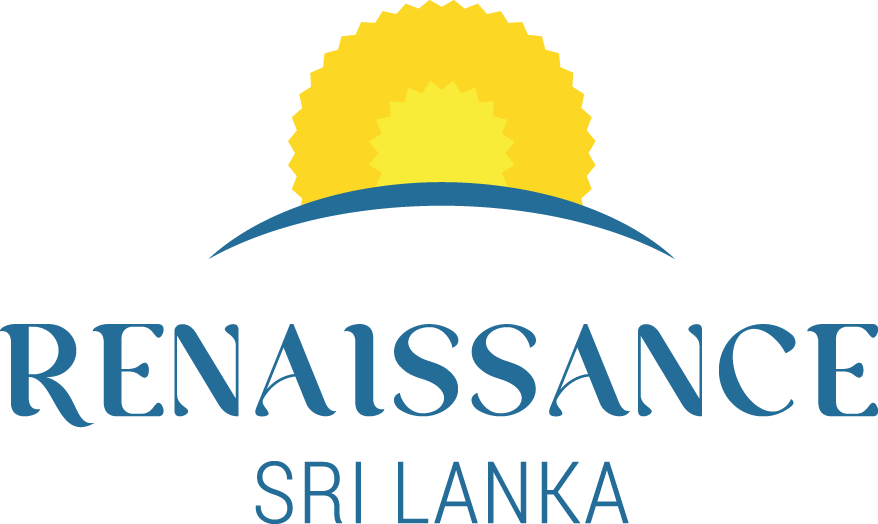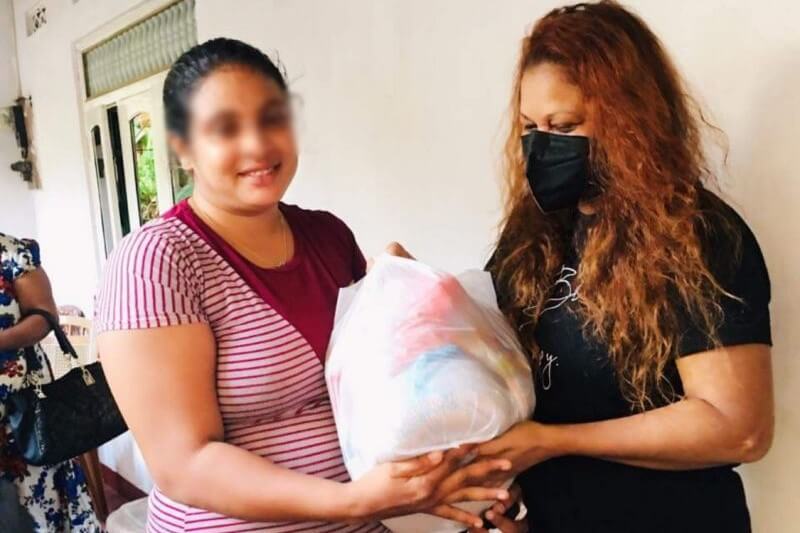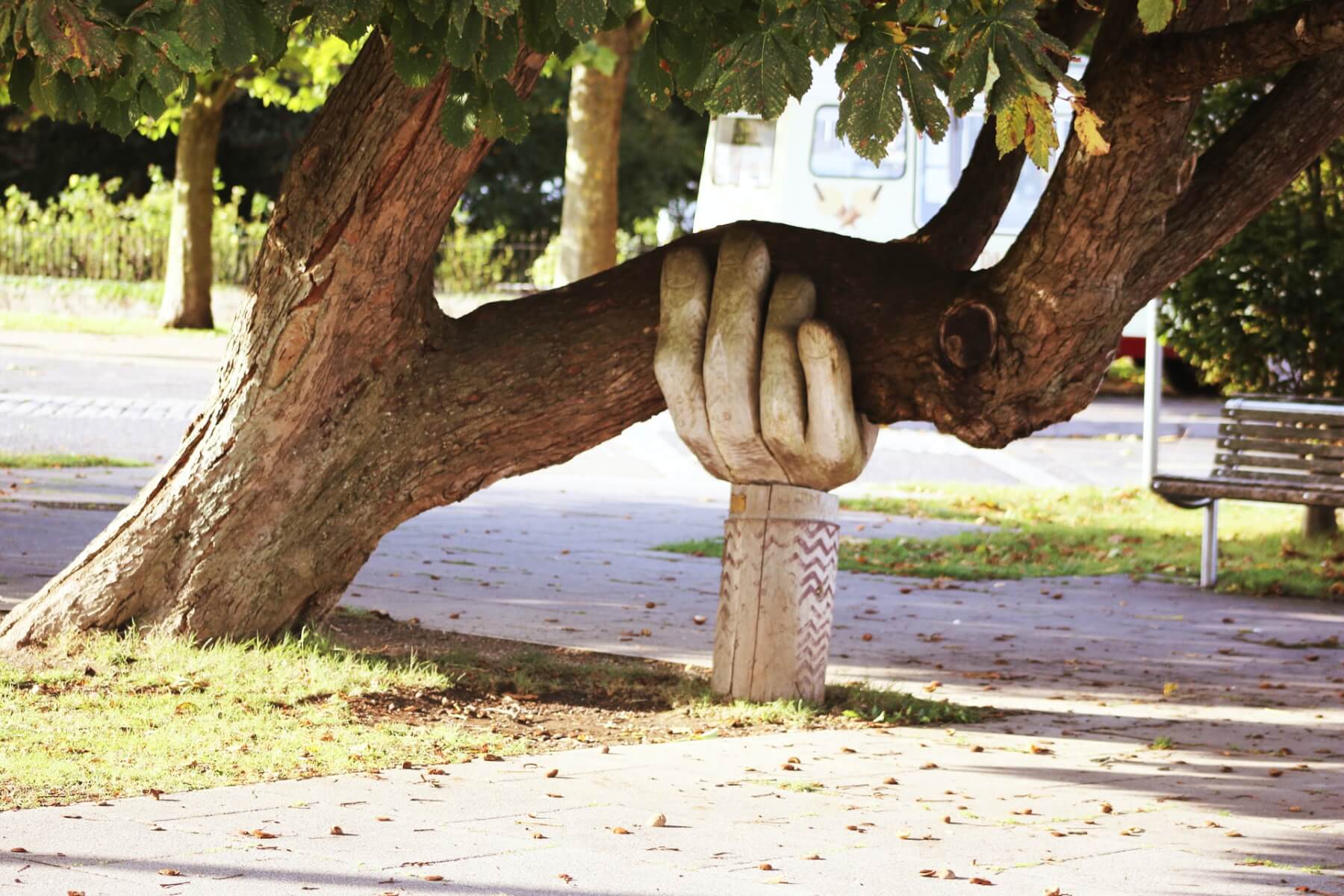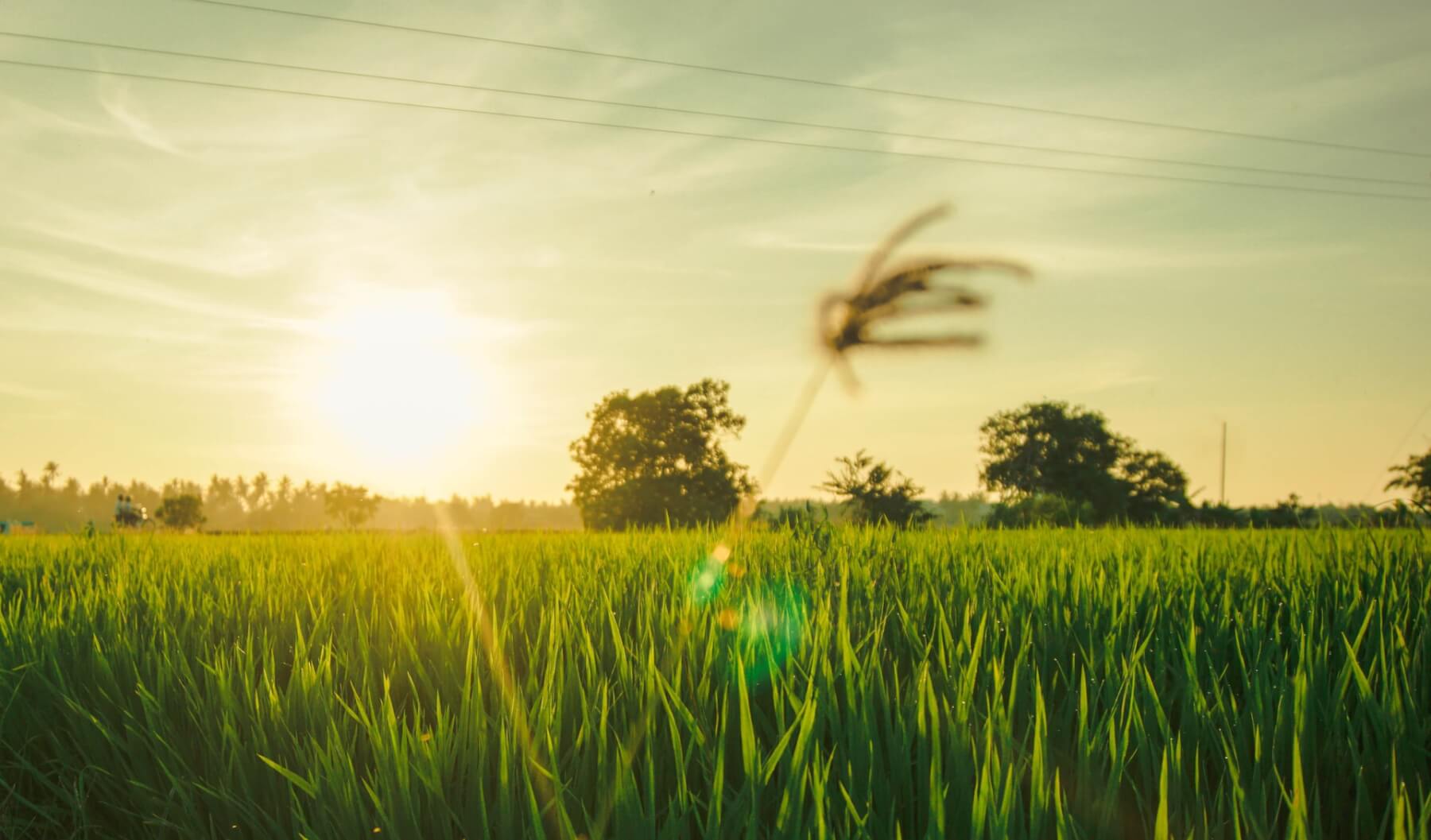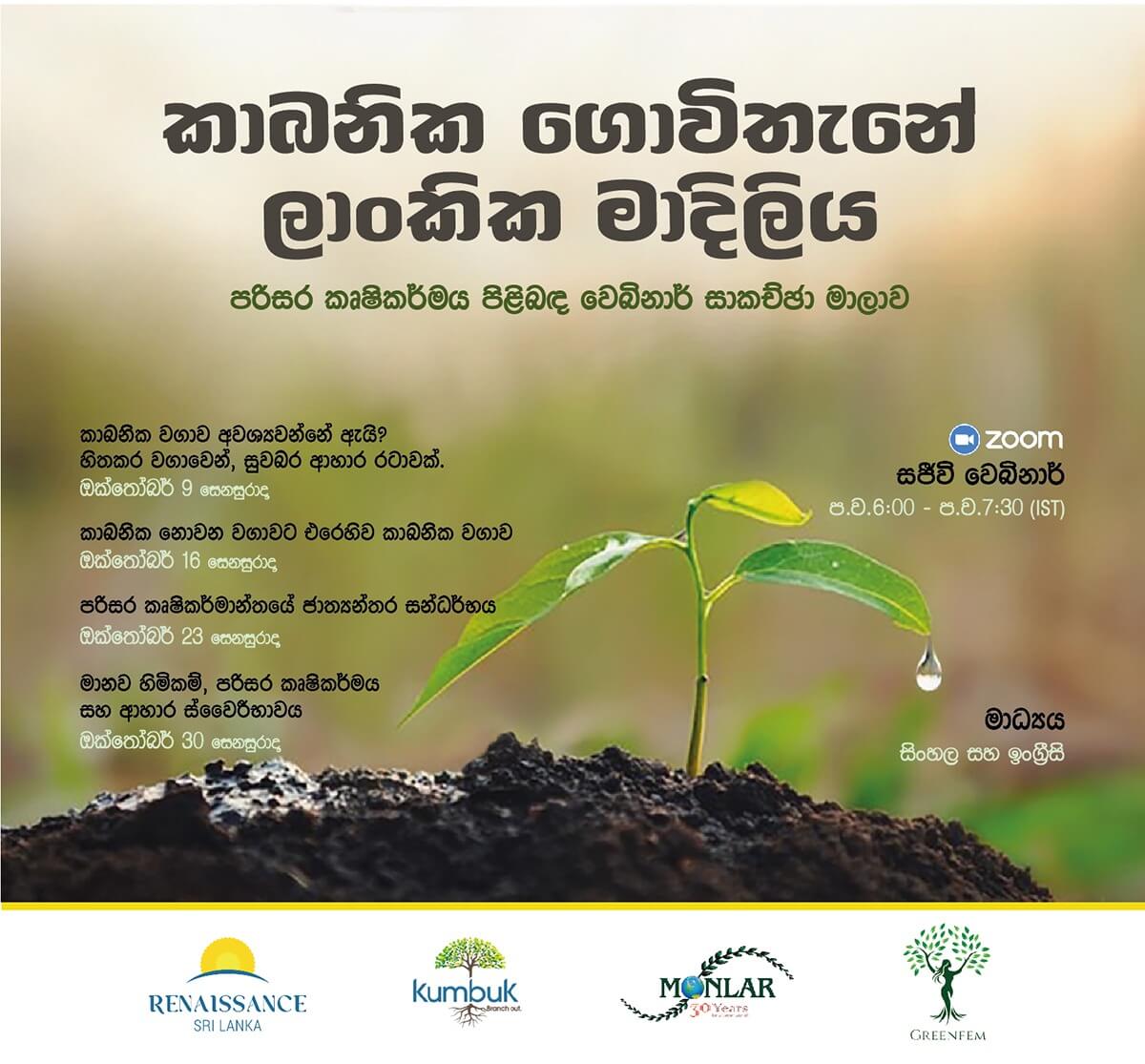Renaissance Sri Lanka distributed emergency food packets to single mothers in Sri Lanka
The plight of many Sri Lankans amid the country’s prolonged economic crisis, the dire effects of COVID-19, and the lockdown have been catastrophic. It has inordinately harmed the community’s most vulnerable section, particularly single-parent households. Many people, especially women, are now unemployed and unable to feed their families owing to a lack of financial assistance. In the subsequent paragraphs, we’ll delve further into the problem and the initiatives taken by Renaissance Sri Lanka to improve and maintain food security within at-risk communities. The worrisome state of affairs necessitates humanitarian aid, but it’s also critical to highlight the predicament of groups who may have little to no help to sustain themselves, such as single mothers.
The Challenges Faced by Low-Income Single Mothers in Sri Lanka
The COVID-19 pandemic has created a global economic crisis. From March 2022, inflation in Sri Lanka has skyrocketed: retail inflation reached 17,5 % and food 25 %. Cooking gas and diesel prices have also soared, due to shortages of the latter in the wake of the Russian invasion of Ukraine, resulting in long waiting lines for petrol and diesel distribution. Over the month of March 2022, the Sri Lankan Rupee devalued by 50 %, from around 200 LKR for 1 USD beginning of March to almost 300 LKR by the end of the month. Many businesses across the formal and informal economies are in danger of either closing down or cutting their workforces.
The 26 years of ethnic-based civil war in Sri Lanka resulted in widowing of an estimated 89,000 women, many of whom belonged to the fishing communities (C. Quist, 2015) who, since the end of the war in 2009, have been struggling to provide for themselves, for their children and sometimes, for their elder relatives.
In addition to widowhood, out-of-wedlock pregnancies, divorce, and separation are other causes of single motherhood. Sometimes, separation can occur when the husband deserts the family due to economic problems, leaving the single mother with a heavy financial and mental burden. This happens most often in the case of underage marriages between 17 and 22 years old, as stated by Jayarathne & Wijethunga (2020). This study also showed that the average monthly income of single mothers in the sample in 2019 was between Rs. 10,000 and 15,000 and that almost a quarter of the women had earnings less than Rs. 5,000. Consequently, the debt rate is significant, and nearly 60% of the survey respondents reported they were indebted.
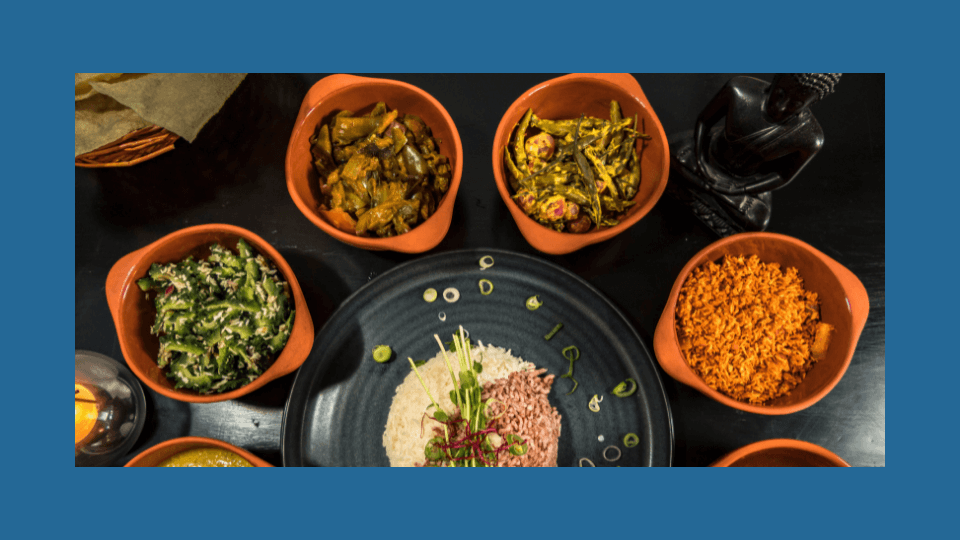
Each situation is unique, and every single mother faces her own individual financial and social hardships. Social difficulties faced by unmarried mothers are, however, the toughest. Their marital status can become a problem when facing judgmental school authorities, for instance, while trying to get their child or children admitted to a school, when trying to rent a home (N. Soysa, 2021), or when seeking employment.
According to Dr. Kanishke Samaranayake (2019), these dramatic situations can lead to mental health issues, anxiety and depression for single mothers living in low socio-economic areas, especially those who have been sexually abused and stigmatised by society. The effect on their children is also dramatic, and those being raised by single impoverished mothers have the highest absentee and dropout rates from school and consequently reach a lower level of education due to poor economic conditions and poor guidance (Samaranayake, 2019).
The Covid-19 pandemic and the subsequent economic crisis will most certainly worsen single mothers’ financial and social situations, but it is difficult to find any estimates since these crises are ongoing. It is therefore urgent to assist single mothers and their households, who have been heavily affected by the Covid-19 pandemic and the economic crisis. The COVID-19 crisis highlights the importance of ensuring adequate social protection coverage for all, which can be accessed whenever people are vulnerable, like during childhood, old age, sickness, disability or unemployment.
In line with current global thinking across the IMF, World Bank and United Nations, there is a proposed solution: offering a package of the universal lifecycle to households headed by a single mother to benefit their children and their parents, or any other member of the household with disabilities, as part of a set of broader support mechanisms that also address unemployment. According to IMF recommendations, providing emergency food aid is essential in significantly securing the affected people from the crisis.
The benefits of the schemes would be significant. They would help keep individuals food-secure and well-nourished, making them less likely to suffer ill-health, including the COVID-19 virus.
Challenge: The pandemic has affected in many ways the regular daily lives of people, it has also disproportionately affected the disadvantaged in the community, particularly households with a single parent. Many people now face unemployment and can’t feed their families due to having no income.
Emergency Food Aid of Renaissance Sri Lanka, an Initiative to Support Low-Income, Single Mothers of Sri Lanka
Renaissance Sri Lanka being a humanitarian organisation, undertook a project, “Emergency Food Assistance Project for Single Mothers Affected In Economic & Social Crisis of Sri Lanka”, in line with current global thinking across the IMF, World Bank, and United Nations, where there is a proposed solution: offering a package of the universal lifecycle to households headed by a single mother, to benefit their children and their parents, or any other member of the household with disabilities, as part of a set of broader support mechanisms that also address unemployment.
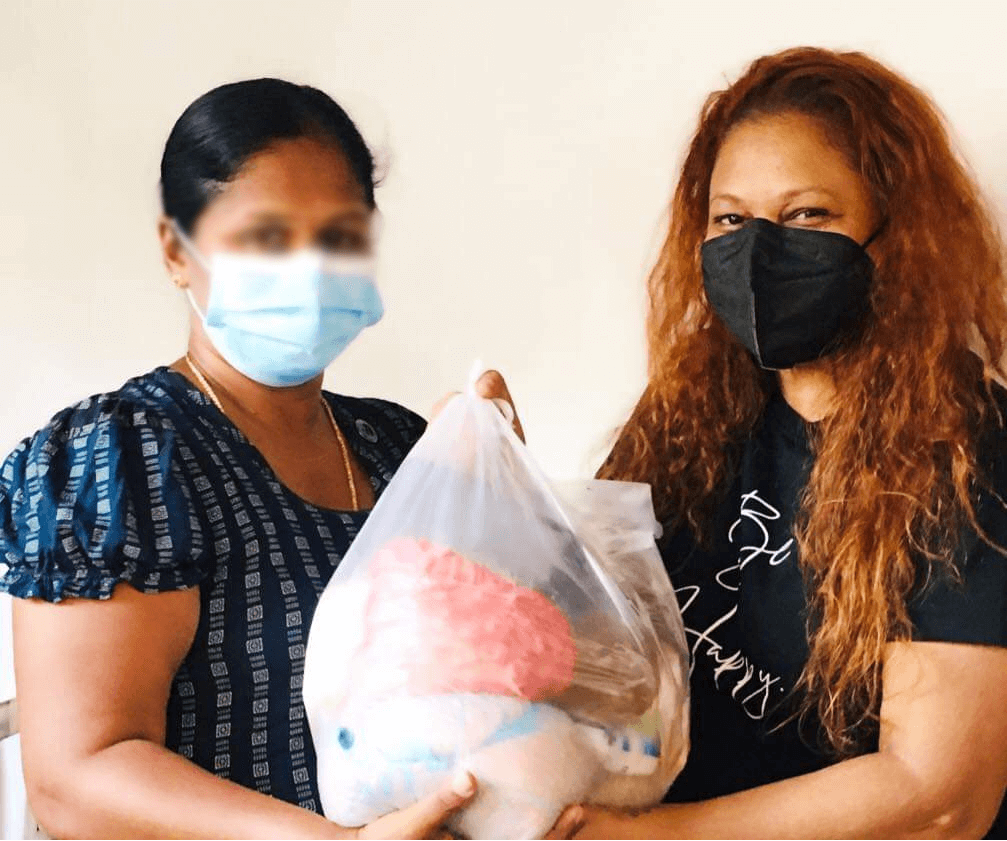
Why is it Important to Provide Single Mothers with Emergency Food Packs?
According to IMF recommendations, providing emergency food aid has enormous importance in securing the affected people significantly from the crisis. Following the considerations of the IMF, World Bank, and UN, where a suggested solution is to provide a package of the universal lifecycle to households headed by a single mother, Renaissance Sri Lanka launched their ambitious project. This ensures food security and nutritional well-being for their children, elders, and other family members. A balanced diet will help people stay healthy, preventing health complications and needless medical expenses. They would have the opportunity to reorient their work, studies, and other essential tasks to enhance their welfare. In many parts of the world, starvation, hunger-related deaths, and malnutrition have been the leading causes of mortality. These issues must be addressed because food and water are essential resources and rights of every human.
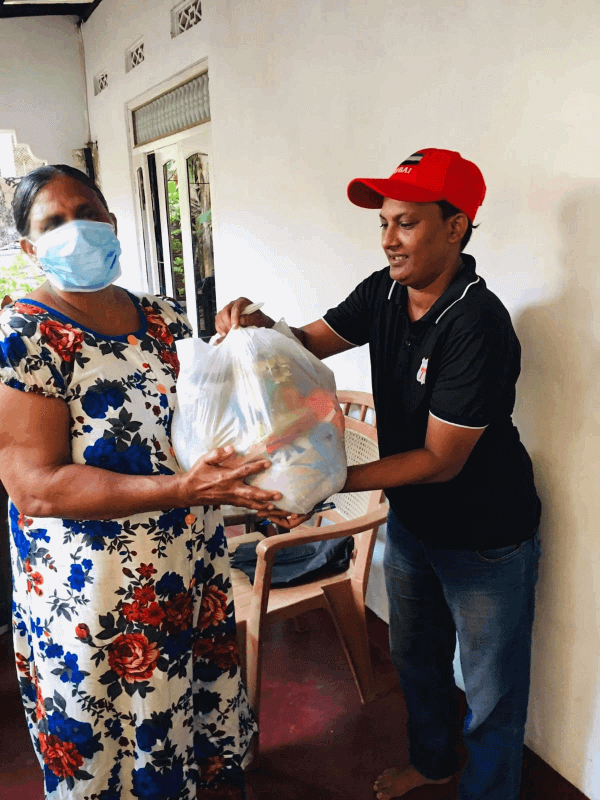
Eligibility Criteria for the Families Receiving Aid
To reach out to the recipient families who have been severely impacted, Renaissance Sri Lanka carried out the project by acquiring the details for the selection from the Grama Niladhari Officer, a government official at the grass-root level. In the initial stage, Renaissance Sri Lanka chose two groups of seriously impacted families in two Ghrama Niladharee divisions of the Trincomalee district.
There were a few criteria used to determine who would be the recipients of these emergency food packages:
- · The head of the household is a single female
- · Loss of the primary income of the family affected by the COVID pandemic and Economic crises in Sri Lanka
- · Basic income below LKR 15,000/= per month and no permanent employee in government and private sector
- · More than two dependent children in the family
- · High priority is given if there are any members with disabilities and elderly persons in the household
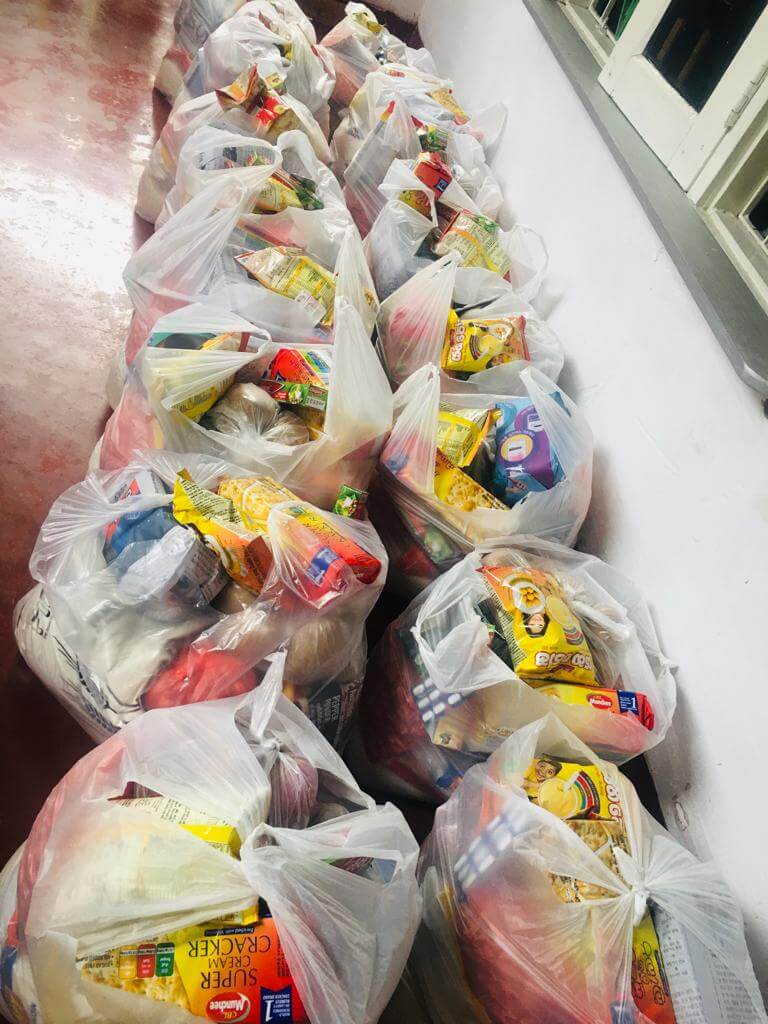
Donations received and budget breakdown
93,000 LKR of donations were used for the project.
Expenses per emergency food packet:
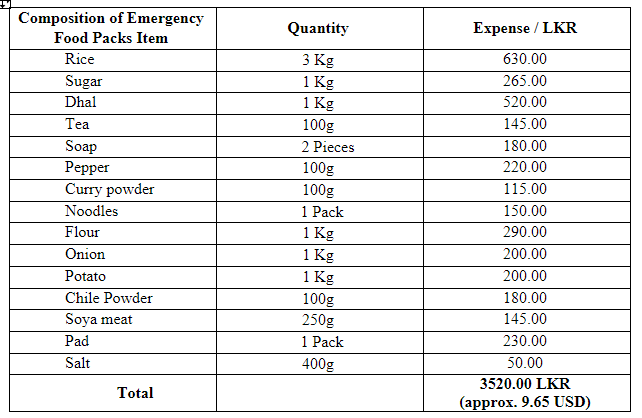
Financial Report:
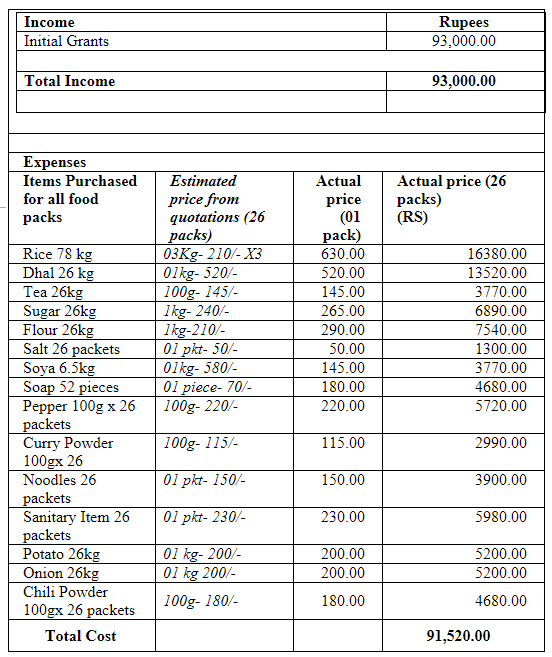
The Distributions of Food Packets to single-mothers
Dates of distribution: 15th May (16 packs delivered) & 3rd June 2022 (10 packs delivered)
Places of distribution: Trincomalee
Number of recipients: 26 women
Approximate Price in LKR: LKR 3, 520 /= each pack
Conclusion
Sri Lanka is still facing extreme food insecurity despite lowering maternal mortality rates and halving poverty, leading to continued widespread malnutrition. Even though the nation has made great strides, food insecurity has the potential to impede its socioeconomic advancement, which needs our urgent focus.
Renaissance Sri Lanka intends to do their bit to help the underprivileged section of the country and bridge the socioeconomic divide by supporting the vulnerable section of society who have suffered disproportionately as a result of these crises. You can browse through our many programs to get a sense of how carefully we use every single penny for the people it was intended for. With your generosity, we would be able to broaden our projects and accept a growing number of people into our initiatives. We need your help, to help others.
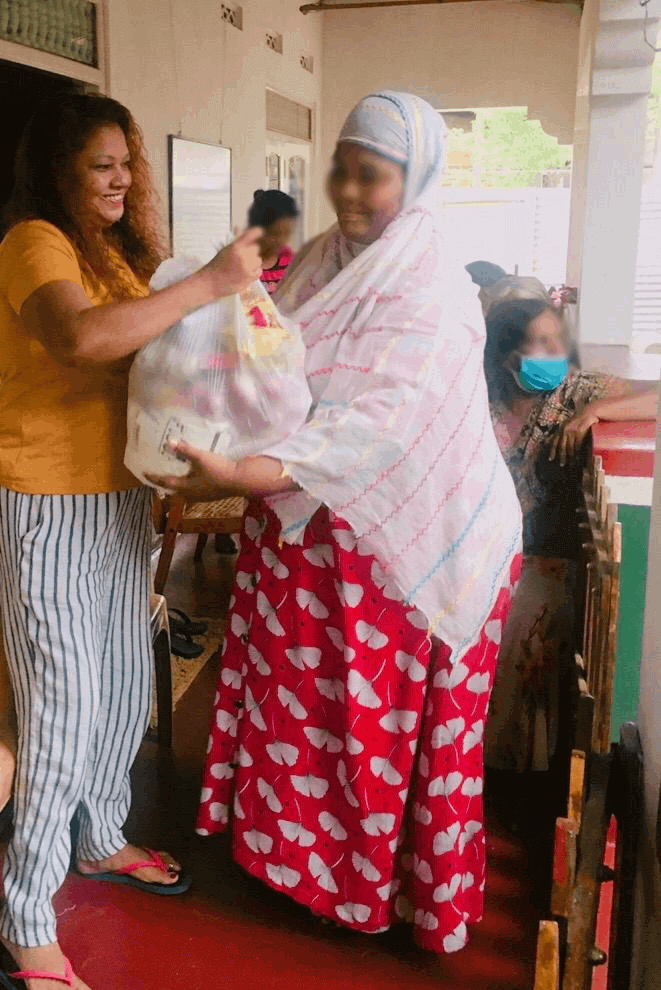
Discover our high-impact projects of community ecosystems that empower thousands of people at a time, here.
References
Coronavirus statistics. (n.d.). Retrieved March 06, 2021, from https://epidemic-stats.com/coronavirus/sri-lanka
IMF (2020a). Fiscal monitor: Policies to support people during the COVID-19 crisis. International Monetary Fund. Washington, D.C.
UNESCAP. (2020). The Impact and Policy Responses for COVID-19 in Asia and the Pacific. United Nations Economic and Social Commission for Asia and the Pacific.
